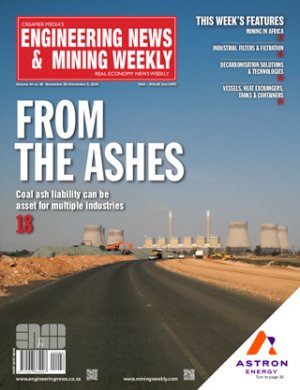Attendees of a technical workshop, facilitated by mining consulting firm The MSA Group at the start of the 2016 Investing in African Mining Indaba, will gain insight into the value proposition of each stage of the mining process, enabling investors to make the best informed decisions, says GM Keith Scott.
The three-and-a-half-hour workshop, titled ‘Giving the Investor a Chance’, will take place on February 7 from 13:00 to 16:30 and aims to provide technical insight for investors who do not have extensive experience in the mining industry.
Scott expects an attendance of between 25 and 45 people, particularly from private-equity providers, fund managers and bankers, adding that lawyers, technical journalists, auditors and new CEOs are also likely to attend.
The workshop will provide attendees with the right tools to ask the right questions and to understand risk when confronted with investment opportunities, he states.
Scott identifies several different stages of the mining process, including prospecting, resource development and mine construction and operation, noting that each stage is associated with different financial, technical, socioeconomic and environmental risks.
The workshop will also highlight the particular risks and opportunities associated with mining in Africa and, as a result, project examples will mostly be from Africa.
When investing in Africa, awareness about challenges such as social risk, infrastructural deficiencies, artisanal mining and local legislation in different jurisdictions is necessary to make an informed decision, Scott notes.
MSA geological services head Brendan Clarke adds that mines in Africa are having to comply with more stringent environmental requirements that are increasingly being imposed locally and internationally.
Meanwhile, MSA Group mining studies head Andre van der Merwe emphasises the need for Africa to focus on its infrastructural bottlenecks to attract investment.
Clarke points out that, as a result of infrastructural deficiencies, commodities like gold, which are less infrastructure-dependent, are currently more attractive investment opportunities.
“An undertone of the workshop will be that, over the past ten years, investments in African mining have borne less fruit than expected, leading to a negative overall return on investment for the continent,” states Scott.
He adds that, owing to the global economic bust, investment in African mining has dropped more rapidly than in other regions of the world, with capital focusing most prevalently on lower- risk developed economies that are achieving stronger returns on the US dollar.
Clarke stresses that, during 2015, the percentage of global mining investment in Africa dropped from about 12% to about 5%.
Scott notes that, in addition to weaker infrastructure in developing countries, significant risk is carried by countries like Nigeria, which he says are too reliant on commodities because economic change is often followed by legislative change, characterised by desperate attempts to maintain stability or maximise local benefits at different stages in commodities cycles.
One paradigm that will be challenged during the workshop is a simplistic view of country risk.
Van der Merwe emphasises that, while African countries are varied and more politically fluid than the home nations of many mining houses, they are not necessarily unconducive to good business. Clarke adds that the risk aversion of some parties generates opportunities for others.
Van der Merwe highlights West Africa-focused gold miner Randgold Resources as a company that has managed to successfully operate in supposedly high-risk regions, such as Mali and the Democratic Republic of Congo, achieving the best worldwide shareholder returns out of all gold producers in the past ten years.
Meanwhile, in addition to the workshop, MSA will be the main sponsor of the Investment Discovery Forum, which will be held from February 8 to 10. The firm will also have a display at the Indaba.
Scott explains that the investor forum presents an opportunity for companies from Africa to present their mining- associated projects to potential investors, adding that the forum has attracted more registrations this year than in 2015.
He expects the investment forum to focus on commodities such as copper, tin, graphite, zinc and lead, which lend themselves to raising capital.
The medium- to long-term outlook for base metals seems promising, largely owing to the long lead time for a base metals mine to be built, Scott adds.
He maintains that players in the gold market are quite bullish and that West Africa is the most prospective region for gold globally.
“Steel commodities are down, so commodities, such as iron-ore, coking coal and manganese are unlikely to be focused on.”
TheMining Indaba can expect a strong team from MSA to highlight its record over the past 33 years, which spans 50 countries and includes involvement across all commodities.
Scott emphasises that MSA’s bullishness at the Indaba fulfils the firm’s goal of being counter cyclical. MSA is not pessimistic about the low point in the market and regards the current environment as a time for real conversation to be had, without the presence of highly speculative capital.
The 2016 Investing in African Mining will take place from February 8 to 11 at the Cape Town International Convention Centre.
Edited by: Samantha Herbst
Creamer Media Deputy Editor
EMAIL THIS ARTICLE SAVE THIS ARTICLE
To subscribe email subscriptions@creamermedia.co.za or click here
To advertise email advertising@creamermedia.co.za or click here










